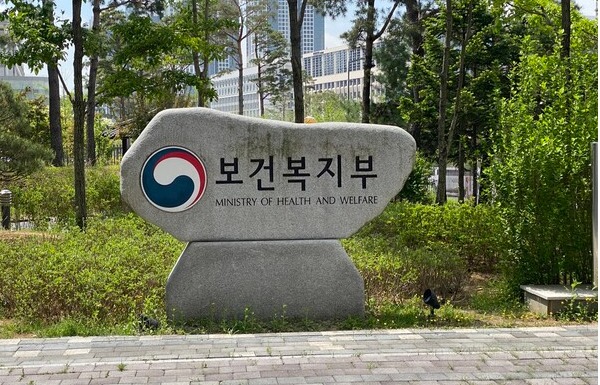The Ministry of Health and Welfare's budget for 2025 has been set at 125.65 trillion won ($94.44 billion).
The budget for the healthcare sector is 18.41 trillion won, an increase of 946.3 billion won from this year, and includes 300 billion won to support training costs for junior doctors and another 300 billion won to expand essential medical care.

The Ministry of Health and Welfare said the 2025 Government Budget Bill was approved at the Tuesday cabinet meeting. The ministry's total expenditure is 125.65 trillion won, up 7.4 percent from this year's budget of 117.45 trillion won, excluding the childcare budget.
The budget for healthcare increased 5.4 percent to 18.41 trillion won, up 946.3 billion won from 17.46 trillion won this year.
The Health and Welfare Ministry's budget for 2025 has been formulated based on five major investment directions: strengthening the welfare of the weak, investing in healthcare reform, responding to population changes, such as low birthrates and population aging, building a national health safety net, and fostering bio-health industries.
The ministry will more than double the financial support for healthcare reform under the five key investment directions.
Under the healthcare reform investment plan, a budget of 400 billion won has been set aside for “trainee doctors and medical students. " This money will pay for training costs and allowances for junior doctors majoring in essential care departments.
More specifically, 300 billion won has been allocated to support training expenses and allowances for 9,000 trainee doctors.
The allowance, which was paid to pediatric trainees and full-time pediatric and delivery doctors this year at a monthly rate of 1 million won, will be expanded to eight essential departments next year -- internal medicine, surgery, obstetrics and gynecology, pediatrics, emergency medicine, cardiovascular and thoracic surgery, neurology, and neurosurgery. The number of trainee doctors eligible for the allowance will also increase from 220 to 4,600, and that of full-time pediatric and delivery doctors will increase from 140 to 300.
The budget for expanding essential medical care is 300 billion won, which will be used to expand 14 pediatric emergency medical centers, 93 night-time hospitals for children, 10 emergency helicopters, 56 special-purpose negative pressure ambulances, equipment for pediatric cancer centers, and introducing proton therapy machines.
The ministry has set 600 billion won for expanding regional medical care, 300 billion won for modernizing facilities and equipment for regional responsibility and regional base hospitals, 100 billion won for consultations between central and regional collaborative care, 200 billion won for expanding facilities and equipment for regional medical centers and Red Cross hospitals, and 200 billion won for introducing community physicians.
Regarding the establishment of a medical safety net, the government has budgeted 300 billion won to expand the compensation limit for childbirth accidents to 300 million won. It will also subsidize insurance premiums for medical staff in essential courses. It will also conduct research and development to train physician-scientists at regional hospitals.
Besides, the ministry allotted a budget of 27.6 billion won for maternal and child health, including the establishment of additional psychological counseling centers for infertility and pregnant women, 45.7 billion won for national mental health investment, 22.3 billion won for mental health support system, 131.8 billion won for mental health promotion projects, 5 billion won for late-night pharmacies, and 6.1 billion won for nursing home care support.
Investment in bio-health R&D was expanded to 1 trillion won. To foster the bio-health industry as the second semiconductor industry, the related budget was increased from 842.8 billion won to 992.7 billion won this year.
In detail, the budget for the Korean ARPA-H project is 70.1 billion won, the budget for the Boston Korea project is 105.5 billion won, and the budget for the interagency project is 611 billion won.
It formulated a budget of 36.7 billion won for pharmaceutical industry development support and 400 million won for domestic innovative medical device voucher support to foster the pharmaceutical industry.

